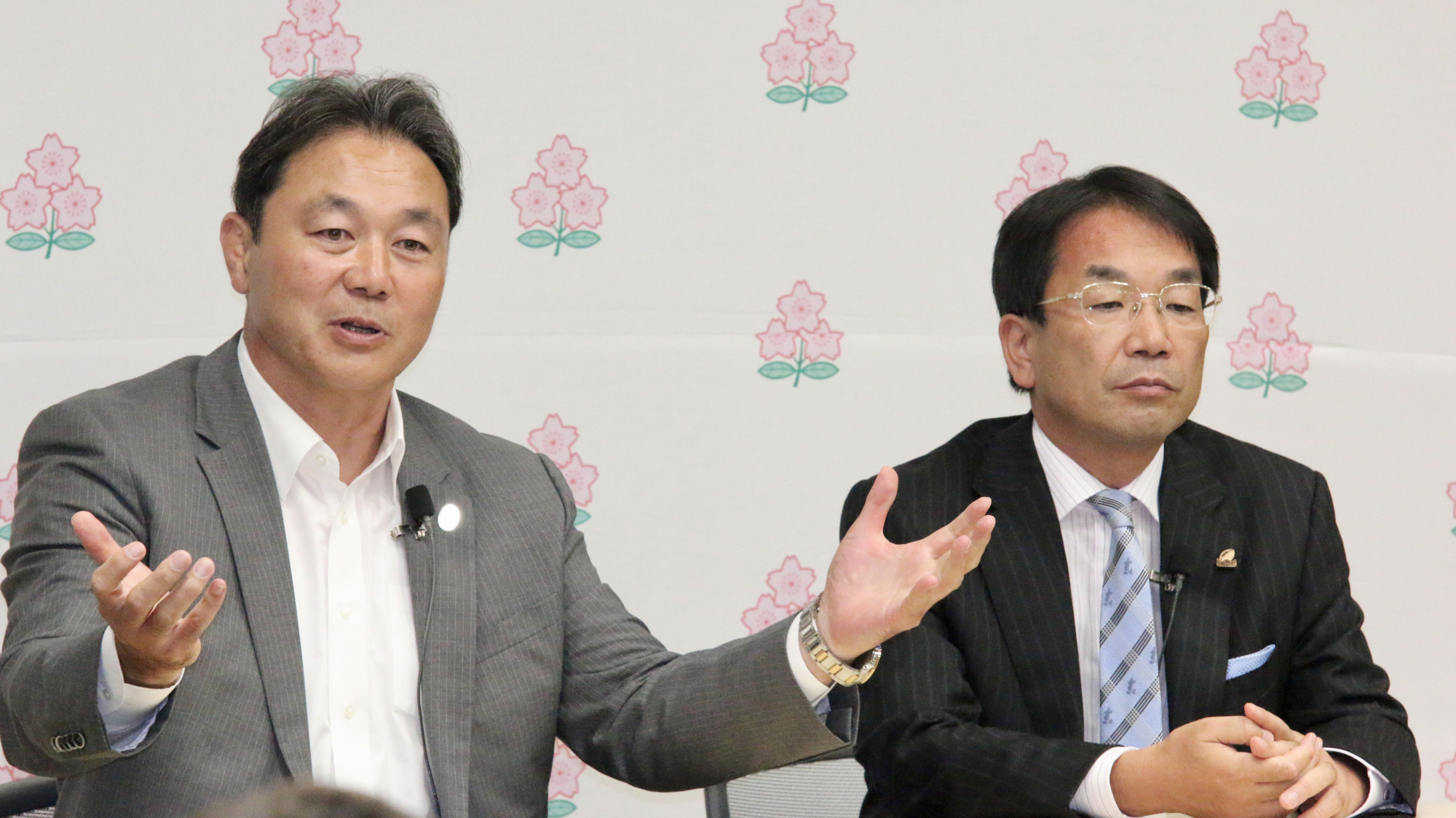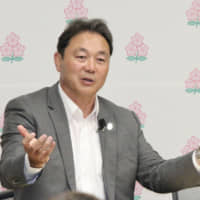The "idea" of establishing a pro rugby league in Japan isn't new one. There just hasn't been anyone to take the lead and run with it.
That is, until Katsuyuki Kiyomiya put his hand up.
The high-profile former college and Top League head coach insisted on Sunday he was part of a group whose goal is to start a professional league in 2021.
"This is the first step to changing Japanese rugby," Kiyomiya said during a sports business symposium during the Sports X Conference, in which he and a few other panelists discussed the future of the game in Japan.
The 2019 Rugby World Cup in Japan kicks off in less than two months, but Kiyomiya has been focused on the sustainable growth and success of the sport in Japan beyond the quadrennial event.
According to data from 2017 that was shown at the symposium, the annual expenditure of Japanese rugby was ¥28.6 billion, which was the third-largest figure in the world. But the profit was only ¥3.8 billion.
"When you spend 28.6 billion, you earn as much in return — you should be able to form a structure like that," said Kiyomiya, who became one of the Japan Rugby Football Union's vice presidents late last month.
Kiyomiya said the formation of a pro league is only a proposal at the moment and that the next — meaning before the conclusion of the World Cup — will be essential in terms of assembling stakeholders for the project.
Kiyomiya, 52, said his group is considering starting the pro league with a dozen teams based in the 12 cities that will host matches during the upcoming World Cup.
Currently, the highest level of rugby in Japan is the Top League, the 16-team industrial circuit, and its second division, the eight-team Challenge League.
Top League teams are owned by some of the nation's major companies, such as Suntory, Toyota, Toshiba and Panasonic. But like in other industrial sports, the companies mainly operate the clubs for the purpose of public welfare.
Masaki Sakaida, a lawyer who has recently become a board member for the JRFU, said he was surprised Japanese rugby relied on excessive amounts of investment by those companies, but generated little profit in return.
"It's not sustainable. We've got to change this by any means," said Sakaida, who also serves as a board member for the Japan Basketball Association, the B. League and the Japan Association for University Athletics and Sport (UNIVAS).
Kiyomiya's group will use the B. League, which has enjoyed remarkable growth since it began play in 2016, as a reference point.
Kiyomiya and Sakaida said they had already discussed this plan with the Top League teams and their management entities and that many of them have shown positive reactions to the plan.
"There have been talks about forming a pro league so many times in the past, but they've never worked out," Sakaida said. "But now there's a leader like Kiyomiya and he's mapped out his vision. Then I think we've earned consent from many of the club representatives."
Kiyomiya, a former head coach for Waseda University, Suntory Sungoliath and Jubilo Yamaha, said that his group would hold a news conference to announce more detailed information about the potential new league in November.




















With your current subscription plan you can comment on stories. However, before writing your first comment, please create a display name in the Profile section of your subscriber account page.